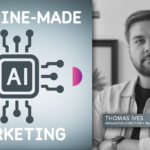By Michael Nyman, Founder & CEO of ACC
Elon Musk famously said, “Great companies are built on great products.”
I couldn’t disagree more.
Where products fail, brands often retain their staying power. And we’re about to see this play out on a massive scale in the coming years as established companies and startups alike chase an explosive menu of shiny objects.
As an agency leader in an increasingly tech-driven world, I’ve heard – more times than not – that product investment has to come before brand development.
The logic goes: Delight the consumer with a great product, and brand loyalty will follow.
In the world of Gen AI, where technology development has been accelerated and has become uniquely consumer-facing, an increasing number of companies are falling prey to this thinking.
They do so at their own peril.
A product is a moment, and a product that simply lags behind or misses an update or iteration risks complete extinction. If your entire brand is built on that product, it’s game over.
Even great, lasting products can’t survive a bad brand. Consider Peloton: A great product, but a terrible brand. Peloton introduced a superior product to the market but neglected brand building. And when the pandemic home gym boom ended, they were left with no identity to hold on to and grow from.
But good brands can endure. Businesses – especially mature ones – can weather significant changes or product issues and emerge with their brands intact. A closer look at brand winners (and losers) reveals that a lot of the great product truisms we uphold fall short in reality.
Brand is more fluid than we realize
Business is constantly in flux. Consider how many well-known companies operate significantly differently from how they did at their founding.
Samsung began as a local grocery chain and didn’t enter the tech market until the 1960s. IBM made hardware before pivoting to software in the 1990s. Netflix started as a DVD-by-mail service. Amazon, once an online bookstore, now works across SaaS, grocery, entertainment, and logistics.
In each case, the original products and business models are nearly unrecognizable. What endured was the brand, proving that a brand is not fixed, but fluid.
Product failure is more common than we realize
A strong brand can help a business recover when its product fails.
Even in the airline industry, beleaguered with safety issues, shrinking seats, and rising fees, brands like Delta and United Airlines still stand out. They’ve continued investing in brand, building loyalty programs around perks like airport lounges and tiered status, even as products declined.
Product failure is more common than most people realize. Consider that Snapchat converted just 0.08% of its app users into Spectacles customers, according to TechCrunch. Similarly, Google Glass failed to capture the interest of customers.
Interestingly, a brand can even bounce back from serious product safety concerns.
Samsung recalled its Galaxy Note7 phones after some exploded and caused injuries. There was severe fallout at Ford after several of its Pinto cars burst into flames during rear-end collisions.
A strong CEO persona is less durable than we realize
The ‘celebrity CEO’ emerged in the 1990s, when names like Steve Jobs, Bill Gates, Warren Buffett, Richard Branson, Larry Ellison, John Chambers, and Andy Grove entered the cultural lexicon and became synonymous with their companies.
They paved the way for others like Elon Musk, Jeff Bezos, and Mark Zuckerberg, making it evident that, much like poor products, a leader’s personal brand can significantly influence a corporate brand.
That tension is currently playing out at Tesla.
It’s caught in the culture war crossfire because its brand identity is so tied to its controversial CEO. Consumers once drawn to Musk’s eco-friendly mission now balk at any association, especially given his recent controversial DOGE role. As a result, Tesla’s stock dropped, and its cars and dealerships were vandalized. All because of Tesla’s association with Musk. It’s a cautionary tale for any business that tries to gloss over genuine brand building and relies too heavily on a CEO’s personal brand.
Products (and charismatic CEOs for that matter) alone won’t protect businesses from the inevitable moments when something goes wrong – when tech falls behind, when consumer preferences change, or when market conditions evolve.
So what’s the takeaway for business leaders?
Abandon product development? Of course not.
Anchor it in your brand identity every step of the way? Yes.
Make the time and resource investment to build your brand over the long term? Absolutely.
Your survival ultimately depends on your brand.











